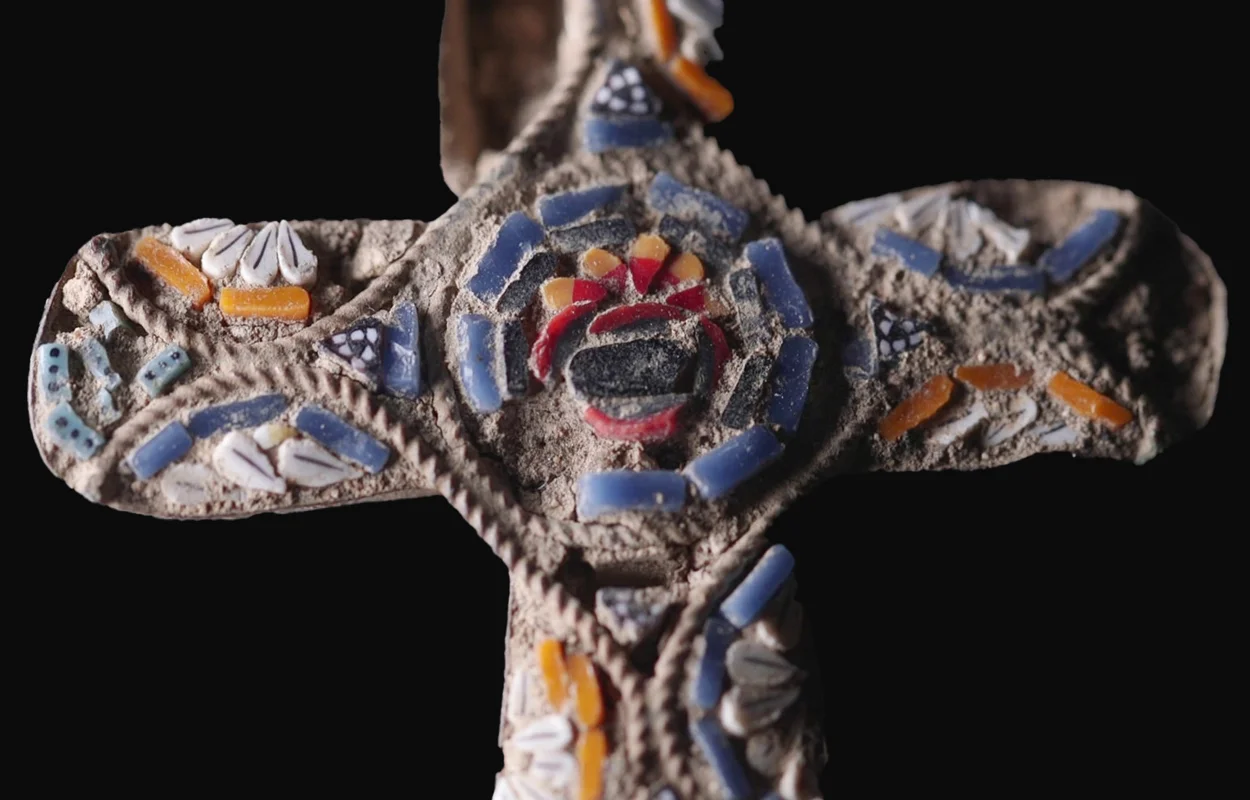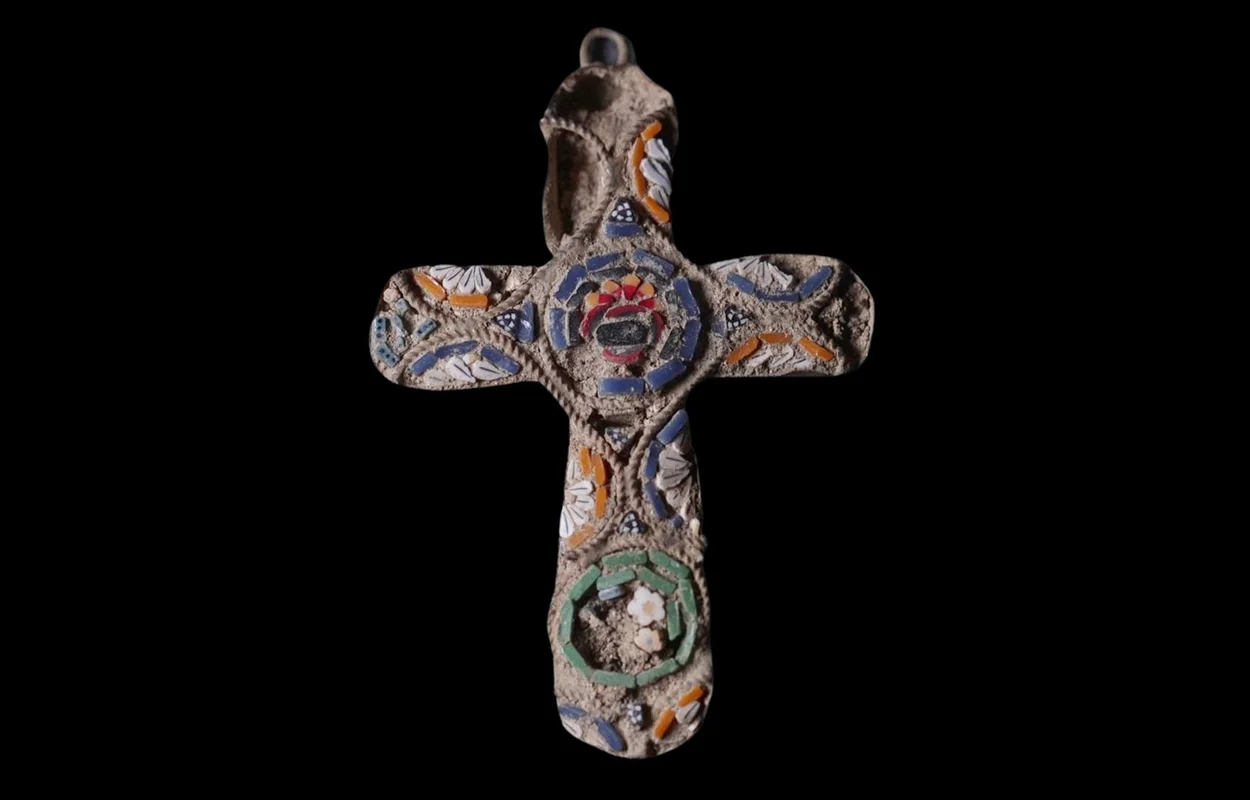During a school trip to the Ein Karem neighborhood of Jerusalem, ten-year-old Nehorai Nir stumbled upon a cross medallion crafted in the intricate micro-mosaic style.
The medallion, dated to 100–200 years ago, consists of glass and colourful stones, set in a micro-mosaic style. From the Renaissance, micro-mosaic objects began to be made in Italy, reaching the height of their popularity in the mid 19th century, when Rome was the centre of production.
Dr. Amit Re’em, Jerusalem District Archaeologist of the Israel Antiquities Authority (IAA), said: “The manufacturing method demanded expert craftsmanship which includes setting glass and tiny colourful precious stones, placed with exceeding precision to form miniature patterns. Besides its beauty, the significance of this medallion is embedded in its findspot—Ein Karem, a site venerated by Christianity.”

Ein Karem was a significant Jewish village during the late Second Temple period and later became a site of great importance to Christianity.
According to Christian tradition, it is the birthplace of John the Baptist, based on the Gospel of Luke, which describes his family as residing in a “town in the hill country of Judea.” Its strategic location between Bethlehem and Jerusalem made Ein Karem a convenient destination for pilgrims, and this led to the establishment of many churches and monasteries in the area.
Archaeologists suggest that the medallion was likely dropped by a European pilgrim, reflecting the centrality of the Holy Land to the three monotheistic religions.
“I would like to personally thank Nehorai for his alertness and his prompt report of the medallion’s discovery, said Eli Escusido, Israel Antiquities Authority Director. “This exciting find in the very month that Christians celebrate Christmas puts the spotlight on Ein Karem as a central place of Christian pilgrimage in the Land of Israel.
Header Image Credit : Emil Aladjem, Israel Antiquities Authority
Sources : IAA





